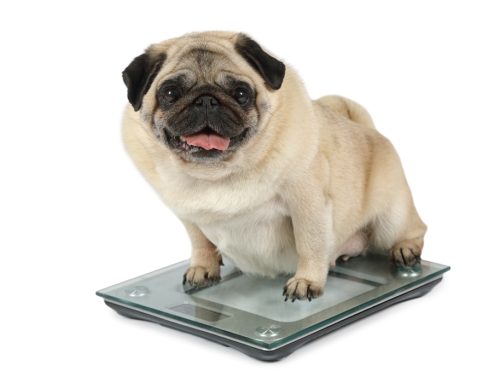When your dog has diarrhea, the whole household suffers. Dogs with soft or watery stools may not feel well, but experience urgency and need frequent trips outside. Occasional diarrhea that resolves in a few days is not a concern, but diarrhea that continues or reoccurs requires veterinary care and investigation. Diarrhea has many possible causes, but your Mt. Horeb Animal Hospital team can determine why your pet does not feel well, and help get them back on their feet.
Diarrhea types in dogs
Diarrhea that lasts only a few days or weeks is termed acute, while diarrhea that lasts more than three weeks, or keeps returning, despite treatment, is considered chronic. The cause of soft stools can originate in the small intestine, large intestine, or both, and each type shows distinct signs that can help your veterinarian narrow down the diagnosis. All diarrhea types involve intestinal inflammation that leads to poor nutrient and water absorption, resulting in soft stool.
Small intestinal diarrhea typically results in:
- Soft or watery stools
- Increased stool volume, but normal frequency
- Normal or lighter in color
- Possible digested blood, giving a dark colored, coffee-grounds appearance
- Absence of frank blood or mucus
- Possible weight loss
Large intestinal diarrhea may cause:
- Soft or watery stools
- Straining and increased urgency
- Normal stool volume with increased frequency
- Possible frank blood or mucus
- No weight loss
Diarrhea type, duration, and other accompanying signs help your veterinarian direct diagnostics and treatment, so be prepared to share this information if your pet requires treatment.
Diarrhea causes in dogs
Diarrhea can be primary, originating from intestinal disease, or secondary to another systemic disease process. Common primary diarrhea causes include:
- Parasites — Intestinal parasites can severely irritate pets with their feeding behavior. Parasites are more common in puppies, but can infect dogs of any age.
- Dietary indiscretion or foreign body — Diarrhea may result when a pet eats too much food, changes diets too quickly, gets a new treat or chew, steals garbage or human food, or eats inedible items, such as mulch, rocks, bones, or toy pieces, which can also cause intestinal obstruction, a life-threatening situation requiring surgery.
- Infection or bacterial overgrowth — Intestinal bacterial infections (i.e., Salmonella, Clostridium) can happen acutely, or the bacteria may become unbalanced. Viruses (i.e., parvovirus) and fungi (i.e., histoplasmosis) can also affect the intestines.
- Inflammatory bowel disease (IBD) — In pets with IBD, the immune system mistakenly attacks the intestines, causing inflammation and chronic diarrhea. Severe cases may cause protein loss, leading to edema, weight loss, and debilitation.
- Lymphangiectasia — This severe disease causes chronic inflammation of the intestines and lymph ducts with fat malabsorption, protein loss, and weight loss. Lymphangiectasia is more common in Yorkshire and Wheaten terriers.
- Food allergies and sensitivities — A food protein allergy can cause inflammation, leaky gut, and chronic diarrhea. To complicate matters, dogs can become allergic to food while the intestines are inflamed, as the body reacts inappropriately to large undigested food molecules.
Secondary diarrhea causes include:
- Exocrine pancreatic insufficiency (EPI) — If the pancreas does not produce adequate food-digesting enzymes, nutrients are not absorbed, leading to chronic diarrhea, extreme weight loss, and a ravenous appetite.
- Pancreatitis — The pancreas can become inflamed acutely or chronically, usually after a fatty treat or meal, but also as a result of other illnesses, or have no obvious cause. Acute pancreatitis typically causes serious illness, and can be life-threatening.
- Systemic illness — Liver and endocrine disorders, such as Addison’s disease, may cause diarrhea.
- Cancer — Intestinal lymphoma can result in chronic diarrhea that can resemble IBD, and successful treatment depends on diagnosing the correct condition.
- Stress — Emotional and physical stress, from boarding, excessive exercise, or heat, for example, may cause temporary diarrhea.
Diarrhea home-care for dogs
If your pet has diarrhea, but no other illness signs, you can implement a few simple home-care measures to help them feel better, including:
- Feeding a bland diet — A bland diet is low-fat and easily digested, and should include one part lean protein (i.e., chicken, lean ground beef, scrambled eggs) to three parts simple carbohydrate (i.e., rice, potato).
- Feeding small, frequent meals — Small meals are more easily digested, so offer four to six meals per day.
- Avoiding treats and edible chews — Avoid treats, table food, rawhides, and bully sticks while your pet has diarrhea.
Veterinary treatment for diarrhea in dogs

If home-care measures don’t resolve your dog’s diarrhea, or you see other illness signs, such as vomiting, lethargy, poor appetite, or weight loss, your pet needs veterinary care to determine the most likely causes. Blood work, X-rays, ultrasound, or endoscopy may be recommended, and treatment may include:
- Diet changes — Special diets with limited ingredients, unique proteins, hydrolyzed proteins, or high or low fiber can help resolve acute or chronic diarrhea. Dietary management is a treatment mainstay.
- Medications — Antibiotics, anti-inflammatories, steroids, and agents to slow down or speed up intestinal transit time may help, depending on diarrhea type.
- Deworming — Deworming medications help ensure undiagnosed parasites are not contributing to the diarrhea. All pets with chronic diarrhea should be dewormed.
- Supplements — Probiotics, prebiotics, digestive enzymes, special glucosamine types, and herbs can help with diarrhea treatment.
Diarrhea can make your dog, and the rest of your household, miserable. If your pet is suffering from diarrhea that doesn’t resolve, or keeps coming back, call us to schedule an appointment with your Mt. Horeb Animal Hospital team.







Leave A Comment